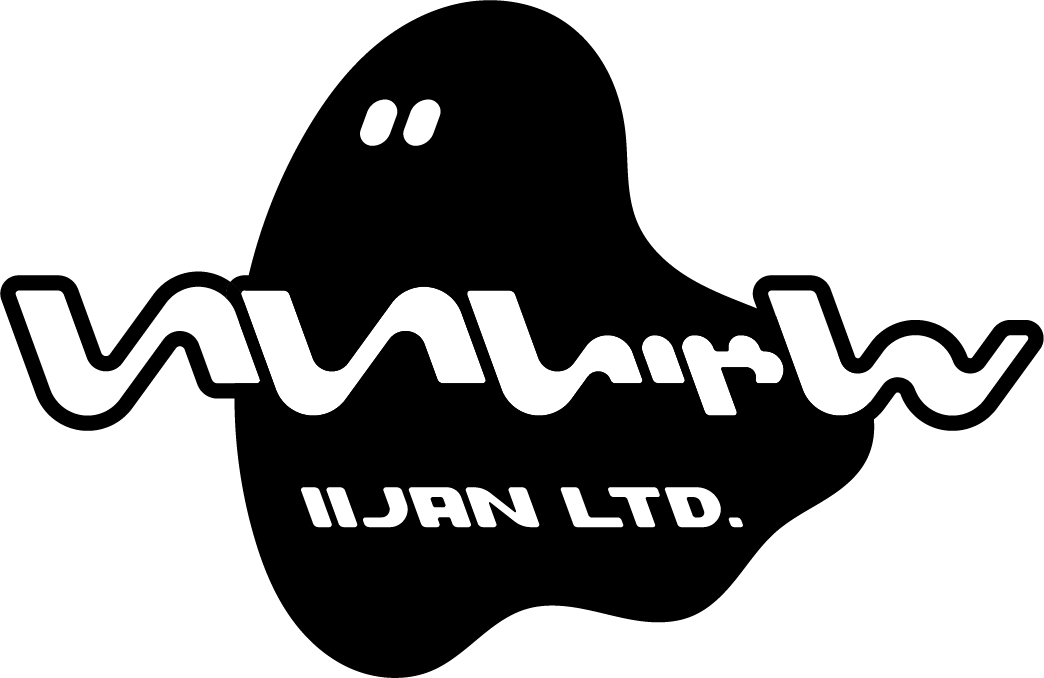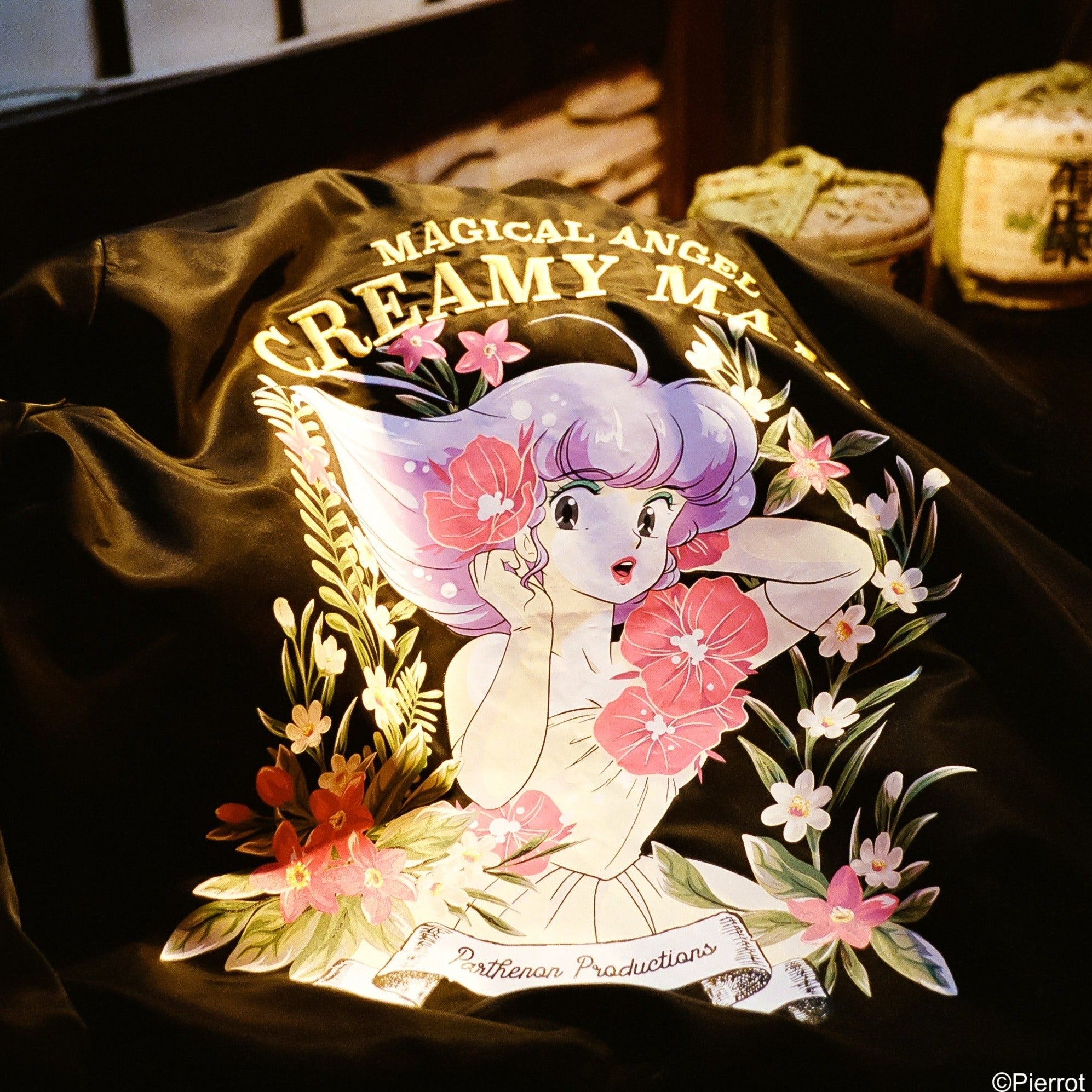【Furusato P (Producer) Anime Path】Episode 5: "The Producer's Job Is a Bit of a Guessing Game, Any Problems?"
The location and name of the studio have been decided. Young staff like production progress managers, setting creators, desks, and production office staff are gathering at the studio. It's a new studio, and although I was the only one initially, the number of people is gradually increasing. Director Fukuda has also entered the studio, and things are slowly taking shape. However, I keep questioning myself in my head. "What exactly is a producer?" "What is the job of a producer?" I am especially clueless about aspects like sound, promotion, and merchandising. I understand the tasks related to setting creation, production desk, extending to scenarios, design, storyboards, etc., so I can proceed with those. But what exactly should a producer be doing? As I wrote previously, I haven't been taught this, nor do I have any senior producers to emulate right in front of me.
With determination, I asked Director Fukuda what was done at this stage in the previous works, "11" and "ZERO". Director Fukuda, experienced with TV and two OVA productions, responded honestly. Fukuda's answer was, "Hmm, next would be something related to music, right?"
In fact, this is where adult circumstances come into play. The record company would be Airs, a part of the Bandai Group. Thus, music producer Akiko Fujita joined us. A meeting was held between Fujita, Director Fukuda, and myself, and it was decided that the composer would be chosen through auditions. We discussed previous composers like Koji Otani and several others, collecting their CDs and having Director Fukuda listen to them. As characters like Hayato aged two years, new original designs were drawn by Inomata, and new anime settings were created by Hisayuki Kukyo. Amidst all these changes, Director Fukuda wanted the music to be more adult-like, arranged in a classical format, and decided to have Toshihiko Sahashi do it. Indeed, the presentation of the story, storyboards, and character acting had changed. Honestly, I was scared of changing the main staff, but once I decided to go ahead, I had no choice but to work hard and proceed honestly.
Regarding the music, I still remember meetings with Sahashi, Director Fukuda, sound director Fujino, Fujita, and myself. Having previous work videos was an advantage. Sahashi had thoroughly studied the videos. The music for "Cyber Formula SAGA" was scheduled to be recorded in four sessions, covering two episodes each.
The first meeting was for episodes one and two. Although there were no visuals yet, just the script and storyboards, previous videos made communication effective. Sound director Fujino explained each scene of episode one, discussing the characters' psychological states and how the music should be used while viewing his music menu (notes on which scenes required music). Director Fukuda provided deeper explanations for the drama. He conveyed his desire to go with a classical arrangement that he had mentioned before. Sahashi suggested including drums in the classical arrangement, wanting to mimic the rhythm of a car engine. He thought extensively about how to convey the thrill of the race classically, deciding later to make extensive use of the "fugue." "When you match it to a cyber race, the music also chases," he explained, which was an eye-opener for me. Indeed, the music was also racing!
After the meeting, Sahashi and music producer Fujita strategized, considering the "Cyber Formula series" as a sport (competition) where young people stake their youth, similar to soccer, baseball, rugby, and marathons - fundamentally competitive, yet also ensemble dramas about youth. Later, I had a chance to speak with Sahashi, who mentioned that after the meeting for "Cyber Formula SAGA", he had the music from the movie "Rocky" playing in his head. That's the "fugue."
Around the time when "Dendoh" was completed, I was chatting with writer Ryosawa, who mentioned, "I like Cyber Formula because it's a sports story that depicts competition as a battle where no one dies." I realized that this fundamentally shared the same root as when Sahashi and Fujita considered "Cyber Formula" a sports series.
At that time, I accompanied the music recording and was amazed by many first-time experiences. What surprised me the most was that the musicians only looked at the scores a few minutes before the recording. "Wait, they don't practice at home like doing homework?!" I was utterly astonished. One of the pianists was reading a manga until just a few minutes before the first test. When the command "Let's start the test" was given, the manga was set aside, and he turned towards the keyboard. I was truly terrified.
After the second test, various adjustments were made, and the third one was the final take. Music pieces lasting three to four minutes were recorded one after another. I think there were about 20 songs in total, and we started in the morning and finished by the evening. I was just speechless.
Moreover, the session started with a full instrumentation which gradually reduced in number, ending with only a piano performance. However, having observed music recordings for various other productions since then, I realized there are different approaches.
Another enlightening aspect was that Sahashi had his chosen conductor and many specified musicians, and even the engineer was specifically selected. This experience led me to understand later on that when deciding on the main staff for a project, it's common to have designated staff members. Since they often work together, there is a lot of shared information among the staff, and even with few words, they understand what is needed and what is expected of them. I also remember being invited to Sahashi's home at that time and having various discussions.
Next, we would work on creating the theme songs and insert songs. I was working on these with Fujita, and as a beginner, there was a lot to learn. I will gradually write about the process of creating songs.
What a producer should do. I was able to move forward gradually by asking questions and learning from the experts in each department—Director Fukuda, Sound Director Fujino, and Music Producer Fujita. Instead of getting overwhelmed by doubts, I tackled the tasks at hand with all my might. I was helped by many staff members whose contributions are too numerous to list here. I now realize that I was being taught by them. I would like to say "thank you" to each of the staff members once again.
Now, the rough drafts of character designs by Inomata have been submitted. The initial drafts included designs for two characters, Namekumo and Phil. Interestingly, the initial rough drafts had the appearances of Namekumo and Phil reversed. Namekumo was initially depicted with short hair and a sharp suit, giving off a slightly rugged vibe. Phil, on the other hand, was a slender young man with long blonde hair. Upon seeing this, Director Fukuda said, "This isn’t right," and decided to swap their designs. Thus, Namekumo ended up with long hair and a suit. Phil was changed to have blonde short hair. Following this, a new meeting was arranged between Inomata and Director Fukuda. Inomata agreed to the changes, and thus, the character designs for Namekumo and Phil that Cyber fans are familiar with were established.
Director Fukuda sometimes does this. During " Dendoh," he also swapped the designs of the fathers of Hokuto and Ginga. Watching this process beside him, I was surprised but also strangely convinced. Ultimately, when the anime is viewed by the audience, this kind of unexpected change creates a perfectly balanced sense of discomfort.
This is a bit off-topic, but Mutsumi Inomata passed away on March 10, 2024. I had just met with her in person for a different matter on February 28. Her smile was right there in front of me. So, when I received the news, I was utterly stunned. I couldn't comprehend what had happened. Since establishing my company, I had frequently asked her to draw characters for various original proposals. We often communicated via phone and email, so I still can't believe it. It's incredibly sad that we won't see any new characters with her compelling and powerful artistic vision.
Inomata loved cats dearly. She had mentioned feeling lonely because her own cat had crossed the rainbow bridge not long ago. Yes, I'm sure she's now on the other side of the rainbow, smiling warmly, surrounded by the cats she loved so much... In fact, she had drawn a portrait of me in January 2024, which I treasure. I will cherish it dearly. Thank you so much. I especially loved the strong, dignified women characters she created, with their powerful, piercing gazes. They seemed to stand firmly on their own two feet, which I found wonderful. Asuka, who stands by Hayato, also has a strong sense of self and supports Hayato steadfastly. The same is true for her male characters; their direct, forthright gazes and the purity in their eyes make them appealing as protagonists.
R.I.P.
The script has been submitted, and Director Fukuda will be drawing the storyboards. We are making progress, little by little. With new tasks continually coming my way, I wonder what new job will appear before me next?
"Cyber Formula SAGA" is not a TV series, but an OVA—Original Video Animation. Thus, I will be meeting with Tamura (Manabu), the producer from VAP, the distributor. Tamura knows more about the production and the work than I do. He is a veteran with experience from previous works "11" and "ZERO", and of course, he understands the fans of "Cyber Formula" who love the series. It's only natural, considering his long experience in marketing and sales.
One day, I went to VAP with Ishida to meet him. There was Tamura, with a smiling face. I was a bit nervous, but it felt like Tamura started the conversation, and his friendly demeanor was a big help. From "SAGA" to "SIN", a total of 13 titles and 10 CD dramas, it turns out we will be working together for a long time. Gradually, the moat is being filled. I am still exploring what it means to be a producer.
By the way, I think I only somewhat understood the job of a producer around the fall of 2004 during the planning and production of "Mai-HiME." After numerous successes and failures, and various experiences, it took me about 8 years to finally acknowledge myself as a producer. In fact, when handing out my business cards, I used to question whether I really deserved to call myself a producer, so it was around the time of "Mai-HiME" that I finally started to allow myself some recognition.
Writing this manuscript brings back many enjoyable memories, but honestly, there were also many failures and tough times. The path of a novice anime producer is indeed a steep one.
P.S.:
I've also started the YouTube channel "Furusato P Anime Road" today, so please make sure to subscribe and check it out.
🔻Here is the link
https://www.youtube.com/channel/UC_jrvVljSFUhGmxpCvYuq5A
🔻Furusato P Photo Album: This Week's Photo

Naotake Furusato
Born on May 3, 1961, in Aomori Prefecture, Japan, began his career in the anime industry in 1982 as a production assistant at Nippon Animation. By 1985, he was working as a production assistant on Studio Ghibli's "Castle in the Sky." In 1987, he joined Sunrise, where he contributed as a production progress staff, setting creator, production desk, and assistant producer (AP) on projects like "Mister Ajikko" and the "Brave Series." He was promoted to producer starting with "Future GPX Cyber Formula SAGA" and went on to plan and produce 14 original animation titles, including "Outlaw Star," "GEAR Fighter Dendoh," "Go! Machine Robo Rescue," "Mai-HiME," and "Mai-Otome."
In February 2011, Furusato established his own planning company, Odd Eye Creative, Inc. He served as planner and producer for series such as "Phi Brain: Puzzle of God" and "Cross Ange: Rondo of Angels and Dragons." He also assisted in planning "Revue Starlight" and participated as an associate producer on "Grendizer U." Currently, he is involved in the gaming sector and is preparing new projects.






コメントを書く
このサイトはhCaptchaによって保護されており、hCaptchaプライバシーポリシーおよび利用規約が適用されます。